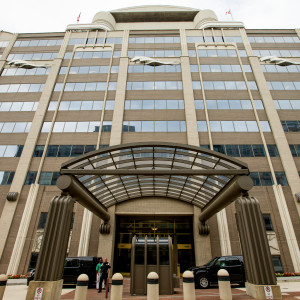A number of government-run internet service providers — a group that hasn’t been favored by Republican regulators in recent years — came out in support of the Federal Communications Commission’s plan to scale back net neutrality rules this week.
Ajit Pai, President Donald Trump’s pick to lead the agency, said Friday that 19 municipal broadband providers reached out to the agency this week to express support for Pai’s plan to undo the reclassification of internet service providers (ISPs) as public utilities.
“They told us that the FCC’s heavy-handed rules have led them to ‘often delay or hold off from rolling out a new feature or service. As a result, [their] customers lose out on having access to innovation and new capabilities,’” Pai quoted from the comments municipal providers filed. “They also explained that ‘these rules are so complex and so difficult to fathom [that] we must pay lawyers and consultants to provide advice and direction to minimize any risk that we will be judged after-the-fact to be out of compliance.’”
The FCC said the municipal networks service small towns from Bagley, Minnesota to Tullahoma, Tennessee, and their comments line up with the criticism Pai laid out against reclassification under Title II of the Communications Act, which subjects ISPs to potential regulations used to break up telephone monopolies like price caps.
Pai said it was especially notable that such non-profit networks “lacking any profit motive agree that eliminating Title II regulation will benefit consumers and promote innovation and investment is a powerful endorsement of reversing the FCC’s 2015 Title II order.”
“On the other hand, these non-profit municipal ISPs explain that my proposal to restore internet freedom ‘will provide real benefits to [their] customer-owners with no downside,’” Pai said. “Among other things, they say that ‘[t]he cost of regulatory compliance will go down’ and they ‘will have greater certainty that [their] investments and development of new services and features will pay off.’”
Support from municipal ISPs for Pai in particular is notable given he voted against a proceeding in 2015 (during the same meeting when the net neutrality rules were passed) that would have let municipal broadband providers in Tennessee and North Carolina expand outside their territories to compete with private internet companies, a violation of both states’ laws and many others across the country.
Pai described the FCC’s decision as a violation of state sovereignty and an unlawful expansion of its authority. At the same time he took “no position” on “the merits of any particular municipal broadband project,” though he’s largely favored policies that support private companies.
“In sum, a return to light-touch regulation will enable them ‘to invest in enhancing [their] networks and [their] deployment of innovative services at affordable prices while still ensuring consumers have unfettered access to the internet,’” Pai said.
The comment period on the notice of proposed rulemaking ended Thursday. The FCC will vote on the draft plan during its May 18 open meeting and begin hearing comments that will feed into the final plan until August.

